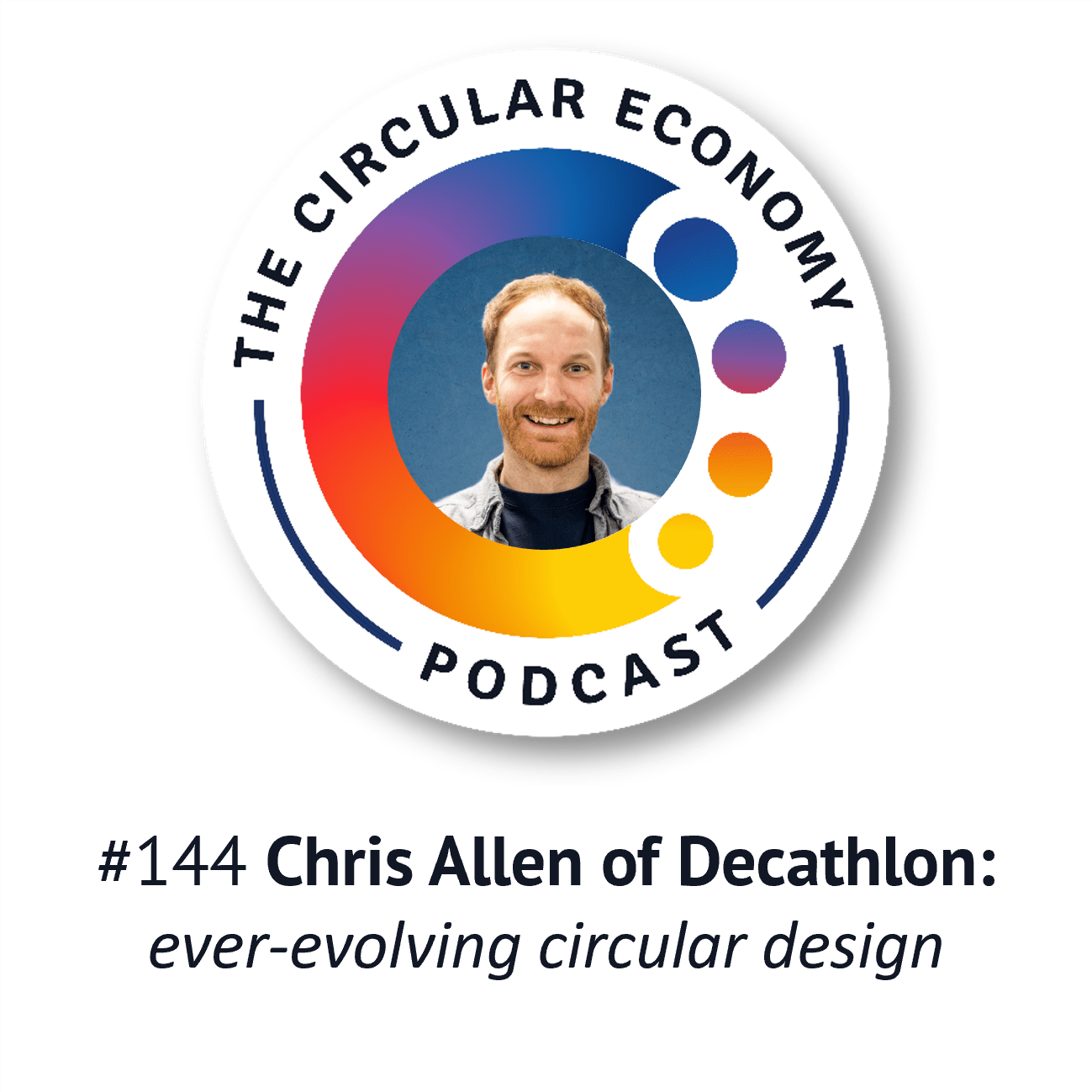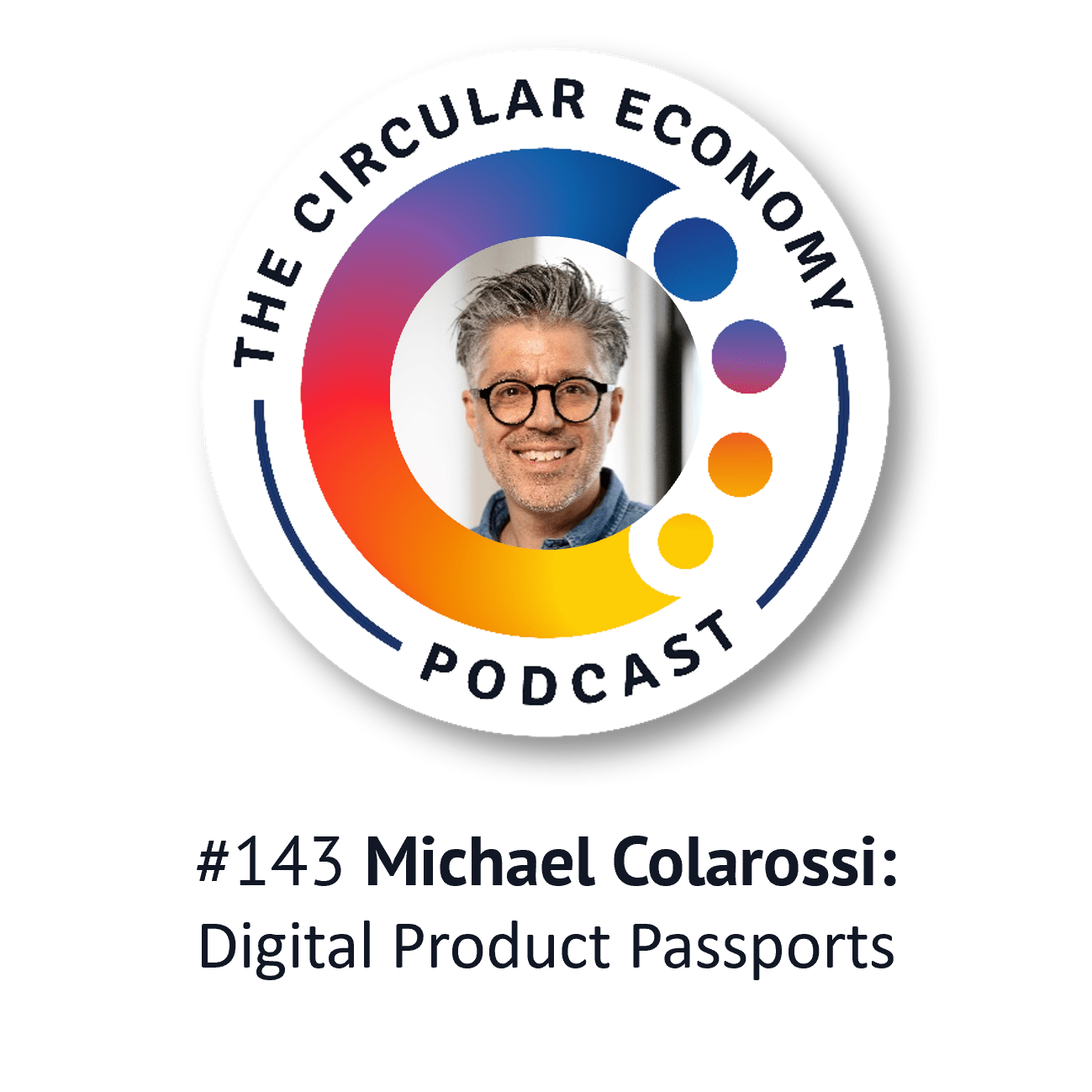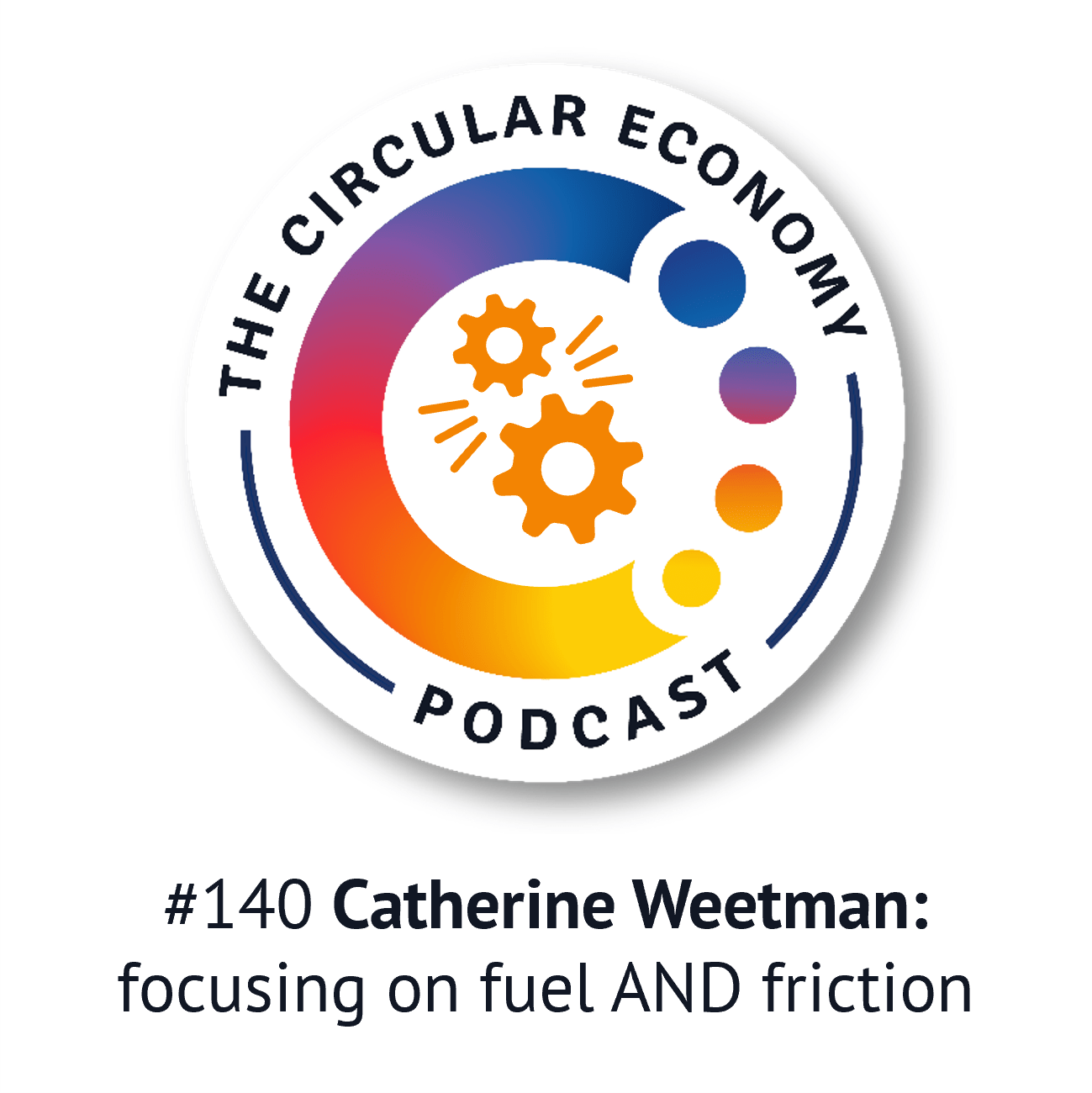Podcast: Play in new window | Download
Sophie Thomas of Thomas.Matthews ltd
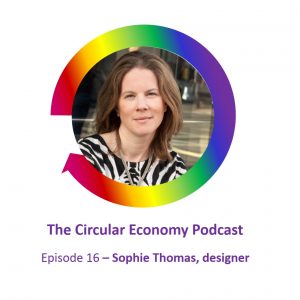 In Episode 16, we talk to Sophie Thomas, who was recommended by designer Adam Fairweather, back in Episode 6. She has been working in the fields of ethical design, behaviour change and material process through her design agency, Thomas.Matthews ltd for nearly 20 years.
In Episode 16, we talk to Sophie Thomas, who was recommended by designer Adam Fairweather, back in Episode 6. She has been working in the fields of ethical design, behaviour change and material process through her design agency, Thomas.Matthews ltd for nearly 20 years.
We find out how Sophie uses her experience in sustainable and ethical design to help people understand more about the circular economy. We talk about the groundbreaking Great Recovery Project, which looked at the challenges and opportunities of the CE, through the lens of design.
Sophie explains the importance of thinking about the system you are designing for, not just the object or product itself. We talk about why it is important to design for more than one product life – not just designing for better recycling, but thinking about the 3rd and 4th lives of the product. Who are you designing for, and how can you make it fit for repair, reuse, and maybe for a service or subscription model.
Podcast host Catherine Weetman advises businesses, gives workshops & talks, and writes about the circular economy. Her award-winning book, includes lots of practical examples and tips on getting started. Catherine founded Rethink Global in 2013, to help businesses use circular, sustainable approaches to build a better business (and a better world).
Stay in touch for free insights and updates…
Read on for a summary of the podcast and links to the people, organisations and other resources we mention.
You can subscribe to the podcast series on iTunes, Google Podcasts, Spotify, TuneIn, or search for “circular economy” in your favourite podcast app. Stay in touch to get free insights and updates, direct to your inbox…
Links we mention in the episode:
- Episode 5 – Katie Beverley – ecodesign
- Episode 6 – Adam Fairweather – reimagine waste
- Catherine’s blogs – Why reuse is #1 tool in the circular economy toolkit and The best circular strategy is NOT recycling
- Sophie Thomas on LinkedIn https://www.linkedin.com/in/sophie-thomas-1965a91b/
- Matthews ltd http://www.thomasmatthews.com/
- The Great Recovery Project http://www.greatrecovery.org.uk
- The RSA https://www.thersa.org/
- Useful Simple Trust https://www.usefulsimple.co.uk/
- Ellen MacArthur Foundation report Completing the Picture: How the Circular Economy Tackles Climate Change
Sophie Thomas MA(RCA), FRSA, MCRWM
Sop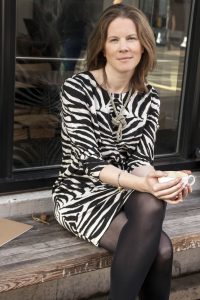 hie is an established leader in communication and design, and in the investigation and promotion of circular economy design principles. She has been working in the fields of ethical design, behaviour change and material process through her design agency, Thomas.Matthews ltd for nearly 20 years.
hie is an established leader in communication and design, and in the investigation and promotion of circular economy design principles. She has been working in the fields of ethical design, behaviour change and material process through her design agency, Thomas.Matthews ltd for nearly 20 years.
Her long-term interest in materials led Sophie to establish The Great Recovery, http://www.greatrecovery.org.uk in 2012. Supported by the RSA in partnership with Innovate UK, the programme built capacity and understanding around circular design in the materials supply chain. Through her work Sophie has become a leader in sustainable product and process design, advising industries like the Oil and Gas, Product and Construction sectors in how to consider design from a closed loop perspective.
She has an in-depth knowledge of material use and how to reduce the impact of design on the environment, and has assisted global businesses and UK government organisations to define the role of designers within discussions around waste streams, resource efficiency and circular economies. In 2014 she became one of the first designers to become a Chartered Resource and Waste Manager (CIWM) and is currently a trustee for the charity WRAP that advises DEFRA on resource use and circular economy.
What we talk about
[01:00] We start with Sophie’s background and how that led her into the fields of ethical design, behaviour change and material process, resulting in her setting up her design agency, Thomas.Matthews ltd, nearly 20 years ago. We find out how Sophie uses her experience in sustainable and ethical design to help people understand more about the circular economy.
How the circular economy is a key tool to tackle climate change
[07:15] Looking back to earlier this decade, we chat about the difference that the Ellen MacArthur Foundation made. In helping move the conversation on from Resource Efficiency and industrial ecology, it meant that businesses and governments began to understand the benefits of a circular economy – for profitable business, jobs, resource security and more. Recently the Ellen MacArthur Foundation has released a report Completing the Picture: How the Circular Economy Tackles Climate Change highlighting the need for a fundamental shift in the global approach to cutting emissions. Moving to renewables can address 55 per cent of global GHG emissions, the circular economy can bridge the gap to tackle the remaining 45 per cent.
The Great Recovery Project
[09:15] We talk about the groundbreaking Great Recovery Project, which looked at the challenges and opportunities of the CE, through the lens of design.
The Great Recovery project was supported by Innovate UK (funded by the UK Government) and The RSA (Royal Society for the encouragement of Arts, Manufactures and Commerce, which ‘believes in a world where everyone is able to participate in creating a better future.’ The project ran from 2012-2016 and developed lots of tools for designers, using a Tear-Down and Design Up approach. The outputs, tools and resources are available online: http://www.greatrecovery.org.uk
Designing for a system and multiple product ‘lives’
[16:00] Sophie explains the importance of thinking about the system you are designing for, not just the object or product itself. We talk about why it is important to design for more than one product life – not just designing for better recycling but thinking about the 3rd and 4th lives of the product. Who are you designing for, and how can you make it fit for repair, reuse, and maybe for a service or subscription model.
Acquiring new customers is expensive!
[19:20] We discuss the benefits of designing durable, upgradable products. Sophie reminds us that it’s 18 times cheaper to keep an existing customer, compared to acquiring a new one, and that business models that aim for technical, cultural and psychological obsolescence seem to be losing traction. We discuss the encouraging early signs of a shift towards selling services instead of (yet more) products, and how some of the major brands seem to be moving towards that.
Are we nearly there yet??
[21.20] We hear about the importance of cultural and emotional factors in how we live and what we choose to buy. Recognising our economic systems are focused on GDP and consuming, so trying to change that is complex, challenging and slow. Even the best business case may not be enough to overcome the inertia. Recently, Sophie feels there is a slight awakening, with the climate emergency starting to galvanise businesses and people into positive actions.
We talk about Circular Economy 2.0 and ethics of the circular economy, agreeing that it’s the best tool we have for sustainability. Sophie is seeing small shifts from global businesses and thinks we need more brave ‘first movers’. Catherine mention’s Vodafone, a major UK mobile network provider, which has just announced it will offer the Fairphone 3.
[29:00] Sophie explains a bit more about the Great Recovery Project, including the design process and the ‘design wheel’ approach. Sophie tells us about some of the examples (including 40 films on YouTube) and project resources, available online.
To find out more about the circular economy, listen to Episode 1, read our guide: What is the Circular Economy or buy the book: A Circular Economy Handbook for Business and Supply Chains
Why not sign up for the latest episode and insights, straight to your inbox?
Want to find out more about the circular economy?
If you’d like to learn more about the circular economy and how it could help your business, why not listen to Episode 1, or read our guide: What is the Circular Economy?
To go deeper, you could buy Catherine’s book: A Circular Economy Handbook for Business and Supply Chains This comprehensive guide uses a bottom-up, practical approach. It includes lots of real examples from around the world, to help you really ‘get’ the circular economy. Even better, you’ll be inspired with ideas to make your own business more competitive, resilient and sustainable.
Please let us know what you think of the podcast – and we’d love it if you could leave us a review on iTunes, or wherever you find your podcasts. Or send us a Tweet: @Rethink _Global.
Podcast music
Thanks to Belinda O’Hooley and Heidi Tidow, otherwise known as the brilliant, inventive and generous folk duo, O’Hooley & Tidow for allowing me to use the instrumentals from the live version of Summat’s Brewin’ as music for the podcast. You can find the whole track (inspired by the Copper Family song “Oh Good Ale”) on their album, also called Summat’s Brewin’. Or, follow them on Twitter.
